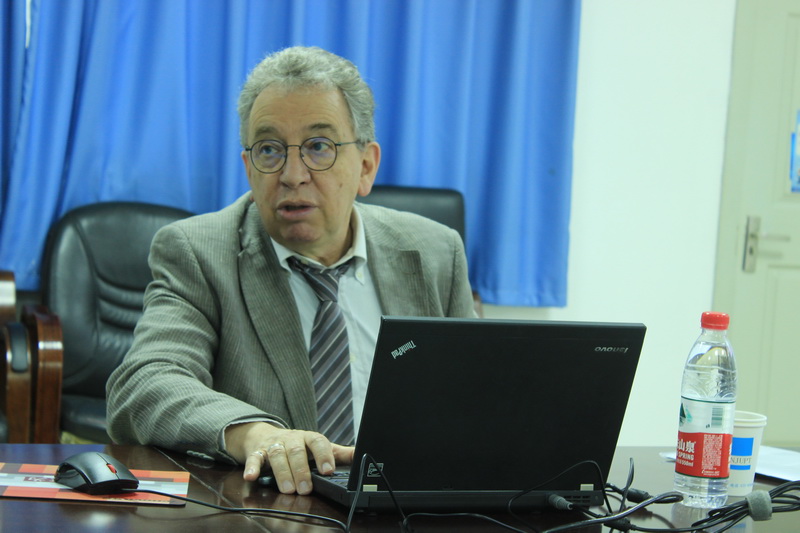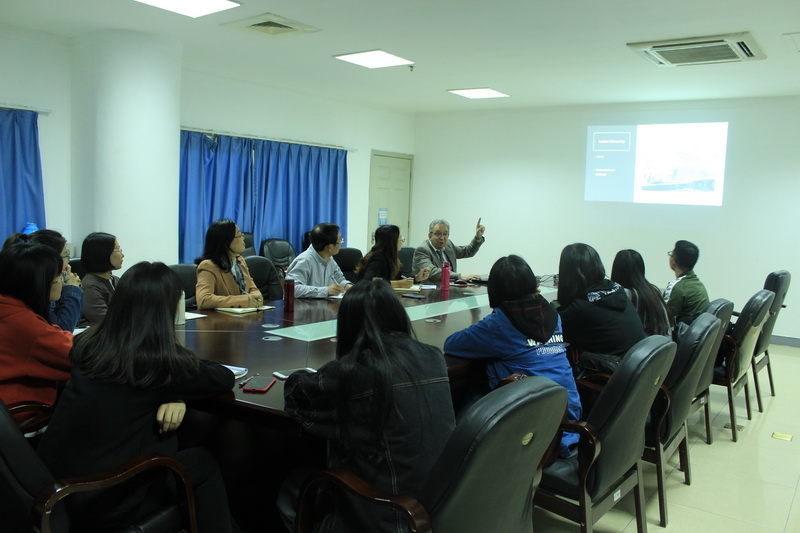On the morning of April 30th, Professor Theodoor D'Haen, a member of Academia Europaea (The Academy of Europe), lectured teachers and students of the School of Foreign Studies on How to Make Good on the Promise of World Literature which is thought-provoking and well-received.
During the lecture, Professor Theodoor elaborated on the origin, development and influence of world literature. He pointed out the inevitable emergence of European centralism in world literature, with British, French and German literature at the core while non-European one on the edge. To clarify the absurdity of those so-called center and edge is a prerequisite to discussing world literature in the context of globalization. All countries in the world interact with each other through trade, literary exchanges and cultural dialogues, joining hands in promoting human civilization. That being said, ProfessorTheodoor also emphasized that among its counterparts, Chinese literature, is of great significance to the development of world literature.
Speaker profile:
Theodoor Louis D'Haen used to work as a professor in English literature and comparative literature at the KU Leuven (Catholic University of Leuven), Belgium. He was chairman (2013-2016) of the Nominating Committee of the International Comparative Literature Association, vice-chairman (2012-2014) and then acting Chairman (2015-2016) of the Coordination Committee of Comparative Literature History. Professor Dehan has been a member of the Academia Europaea since 1999, serving as director of the institution since 2002 and then an executive director since 2009. Besides he was also chairman of the Department of Literature and Drama Studies from 2001 to 2009.
Professor Dehan has been editor-in-chief of European Review, one of SSCI Journals (published by Cambridge University Press) since 2008. Additionally, he has also served as an editor or consultant for several well-known academic journals, and has published several books on American literature, postmodernism, post-colonialism and world literature.





